By Joseph Baldacchino
(…)
The think tank intellectuals and hired guns are ready with glib answers. Conservatism means “liberty” or “freedom.” It means “limited government.” It means “constitutionalism,” “free markets,” “private property.” But these are general terms, which can each have very different—even opposite—meanings. Whether the mentioned ideas are good or bad depends upon what is meant and the purposes served in each instance. Traditional conservatives—from Edmund Burke and John Adams in the eighteenth century to Irving Babbitt and Russell Kirk in the twentieth—supported liberty, property, and restraints on government but not as ultimate ends in themselves. They saw them as conducive to efficient production and other commodious arrangements, but most importantly as means to the higher ends of society, which can be summarized in the term “community.”
…
when it becomes common for economic actors, be they janitors or heads of hedge funds, to set aside normal moral and cultural restraints when at work, it will undermine not only the quality of their everyday existence but also damage the honesty and integrity on which a well-functioning market and indeed all civilized life depend. It needs to be understood that in a time of precipitous moral decline freedom may actually become positively destructive of the higher purposes of society. Imagine historical circumstances in which captains of finance have, because of a general moral decline, become unscrupulous, caring little about the welfare of their customers, employees, or society at large. In such a situation, a mentality of unmitigated greed might become pervasive. On the other hand, freedom may become something altogether different where economic and cultural elites embody and expect high standards.
Yet, when the conservative movement so powerful in American politics over the past half century was getting its intellectual start in the 1950s, it became apparent very soon that its participants were profoundly at odds concerning the meaning of freedom, which hinges on the fundamental nature of man and society. Along with Burke and most framers of the American constitution—and in keeping with the pre-modern classical and Christian heritage—conservative academics such as Russell Kirk, Robert Nisbet, and the economist Wilhelm Röpke denounced as reductionism the notion that human beings, who are almost wholly dependent on society for the very attributes that make them human, are ultimately obligated to nothing beyond individual self-interest.
… Babbitt held that American liberties owed their very existence to the classical and Christian moral and religious heritage.
But other influential movement founders held the opposite view. Taking sharp issue with the “New Conservatism” of Kirk, Nisbet, Peter Viereck, and others, Frank S. Meyer, who would become a prime architect of the movement, declared sweepingly in a 1955 article that “all value resides in the individual; all social institutions derive their value and, in fact, their very being from individuals and are justified only to the extent that they serve the needs of individuals.” (Frank S. Meyer, “Collectivism Rebaptized,” The Freeman (July 1955), 560) Meyer’s radical individualism, which he attributed in large part to John Stuart Mill, was shared to various degrees by numerous others whose ideas helped shape the early conservative movement, including the economists Ludwig von Mises, Friederich Hayek, and Milton Friedman.
Movement conservatism was thus divided from its beginning on the central issue of man’s moral nature and its relation to politics and liberty. Yet, by the mid-1960s, serious theoretical argument had given way to an ostensible consensus, dubbed “fusionism.” This ideological position, whose leading exponent was Frank Meyer himself, has been summarized as holding that “virtue is the ultimate end of man as man,” but that individual freedom is the “ultimate political end.” Indeed, according to Meyer’s relatively mature, “fusionist” position, the “achievement of virtue” was none of the state’s business, hence not a political question at all. ( George H. Nash, The Conservative Intellectual Movement in America Since 1945 (New York: Basic Books, 1976), 174)
Despite its label, Meyer’s “fusionism” never achieved a genuine philosophical synthesis of Burkean conservatism and the ideology of classical liberalism or libertarianism. A genuine synthesis would have been impossible, for the two opposing positions are based on contradictory assumptions. For traditional conservatives, the notion that freedom can exist in the absence of moral restraint flies in the face of all historical experience.
Adam Smith, who is widely regarded as the father of economics, noted in The Theory of Moral Sentiments, for example, that “upon the tolerable observance” of such duties as politeness, justice, trust, chastity, and fidelity “depends the very existence of human society, which would crumble into nothing if mankind were not generally impressed with a reverence for these important rules of conduct.” Smith added that social order is not spontaneous or automatic, but is founded on institutions that promote self control, prudence, gratification deferral, respect for the lives and property of others, and some concern for the common good. (See Mark L. Melcher and Stephen R. Soukup, “Capitalism: RIP,” Politics et Cetera, February 2, 2009, 1-5.)
Burke, who was an admirer of Smith, similarly wrote: “Men are qualified for civil liberty in exact proportion to their disposition to put moral chains upon their own appetites; in proportion as their love of justice is above their rapacity . . . . Society cannot exist unless a controlling power upon will and appetite be placed somewhere, and the less of it there is within, the more there must be without.”11 Hence, for traditional conservatism as represented by Burke, by Smith in important respects, and by the American constitutional framers, the advancement of political liberty in any meaningful sense necessarily entails the simultaneous advancement of an ethic of individual restraint and responsibility in support of the common good. Success in the first is impossible without success in the second. To suggest otherwise, according to traditional conservatism, would be absurd.12
(nota 12: It should be emphasized that, for Burke and for traditional Anglo-Saxon conservatism in general, the ethic of restraint perceived as essential to the free society does not consist of uniform adherence to an a priori blueprint, to be followed regardless of circumstances. Rather, it results from a special quality of will—toward goodness—that exists at least potentially within every individual, albeit in continuing tension with desires of a lower quality.
The higher or ethical will seeks in ever-changing conditions to restrain contrary impulses toward narrow self-indulgence or arbitrariness in order to create from the situation at hand new historical reality that advances our highest human potential. Compared with a social order that views morality as conforming mechanically to ideologies or dogmas that are always and everywhere applicable, one that recognizes individual creativity as necessary for moral action will tend to place greater value on decentralization and on the accommodation of diverse competing interests.
Still, a society influenced by traditional Anglo- Saxon conservatism will see the need to place restrictions on certain types of behavior through law. Owing to the inner tension between good and evil within every person, it would be unrealistic to expect people always to live up to the commands of moral conscience for the sake of morality alone. By having government enforce penalties for kinds of activity that have proved especially harmful to human dignity, society can enlist men’s desire to avoid punishment—though itself not a moral purpose—in the service of the higher good.
To allow broad scope for individual moral creativity, however, a society guided by traditional conservatism will limit the number of laws and regulations to the fewest practicable. And, to reduce the element of uncertainty that makes moral and other actions always difficult, such a society will avoid changing the law except when absolutely necessary. See Joseph Baldacchino, “Ethics and the Common Good: Abstract vs. Experiential,” Humanitas, 15:2 (2002), esp. 39-59.)
Yet Meyer’s fusionism does precisely that. He elevates the pursuit of liberty to the highest goal of politics while ignoring freedom’s dependence on moral restraint and its corresponding institutional and cultural supports. True enough, in his overtures for the traditionalists’ support, Meyer pays homage to man’s higher ends, even to religion, yet it is clear from his writings that he remains at a loss concerning what those ends entail. As late as 1962 he was still asserting, for example, the reality of the “rational, volitional, autonomous individual” versus the “myth of society.”13 (Frank S. Meyer, In Defense of Freedom: A Conservative Credo (Chicago: Henry Regnery Co., 1962), 22-23 and 28, cited in Nash, Conservative Intellectual Movement, 172 and 173.)
(…)
A telling measure of morality’s lack of significance in Meyer’s fusionism is that it paralleled the place accorded to religion by many avid secularists: religion is all right as a private matter, but it has no legitimate place in public life. According to Meyer, the constitutional framers shared his preference for separating morality and politics, but this would have come as startling news to George Washington, among others, who said in his Farewell Address: “Of all the dispositions and habits which lead to political prosperity, religion and morality are indispensable supports. . . . [R]eason and experience both forbid us to expect that national morality can prevail in exclusion of religious principle.”14 (Washington’s Farewell Address, 1796, http://www.nhinet.org/ccs/docs/farewell1796.htm.)
(…)
Ironically, in the same 1981 issue of Modern Age in which the libertarian Rothbard explained that Meyer’s fusionism was actually libertarianism, Russell Kirk posed the question of what conservatism (of the traditionalist or pre-fusionist variety) and libertarianism have in common. His answer was that, except for sharing “a detestation of collectivism”—an opposition to “the totalist state and the heavy hand of bureaucracy”—conservatives and libertarians have “nothing” in common. “Nor will they ever have,” he added. “To talk of forming a league or coalition between these two is like advocating a union of fire and ice.”17 (Russell Kirk, “Libertarians: The Chirping Sectaries,” Modern Age, 25:4 (Fall 1981), 345-51.)
(…)
As noted previously, fusionism, too, made Mill’s principle sacrosanct, denying any legitimate place in politics for promoting moral restraint. The ability of every individual to act without regard for the common good was elevated to the highest end of conservative politics. All of conservatism’s subsidiary political goals—limited government, free enterprise, private property, minimal taxation—became similarly associated with the unrestrained pursuit of self-interest.
If society is considered less than real, the highest goal for which the individual can strive is to be able to do as he or she pleases to the greatest extent possible. And since doing as he or she pleases is synonymous with freedom by the fusionists’ definition, it follows that, for them in their heart of hearts, there never can be too much liberty or (which is to say the same thing) too little government. To view the world in the light of such broad generalizations discourages subtlety of mind and attention to the needs of actual historical situations. “If you believe in the capitalist system,” Rush Limbaugh explained in a September 2009 television interview, “then you have to erase from your whole worldview what does somebody need. It’s not about need. . . . it is about doing whatever you want to do.”19 ( Rush on The Jay Leno Show September 24, 2009, http://www.rushlimbaugh.com/home/daily/site_092509/content/01125106.guest.html)
In contrast with the one-sided emphasis on freedom characteristic of movement conservatism since the 1960s, traditional conservatism views both government and limits on government as necessary responses to man’s flawed moral nature. Because men are not angels, as Madison observed, government is needed to help restrain their passions. But since governments are made of fallible men and not angels, governments also must be limited: “In framing a government which is to be administered by men over men, the great difficulty lies in this: you must first enable the government to control the governed; and in the next place oblige it to control itself.”20 (Madison, Federalist No. 51.)
Similarly, Burke instructed: “To make a government requires no great prudence. Settle the seat of power; teach obedience: and the work is done. To give freedom is still more easy. It is not necessary to guide; and only requires to let go the rein. But to form a free government; that is, to temper together these opposite elements of liberty and restraints in one consistent work, requires much thought, deep reflection, a sagacious, powerful, and combining mind.”21 (Burke, Reflections, 373-74 (emphasis in the original).)
Unfortunately, what America has lacked during much of its history and increasingly so is “free government” such as advocated by the framers, Burke, Babbitt, Kirk, and other traditional conservatives. Instead, the tendency has been for political power and the control of government to lurch back and forth between Big Government “progressives” who are prone always and everywhere to “teach obedience” and Small Government “conservatives” (or libertarians) who are prone always and everywhere to “let go the rein.”
Because guided by abstract generalizations rather than historical reality, ideologues of both types are blind to the changing proportions of liberty and restraint appropriate to actual circumstances. The assumption of power by either group, therefore, inevitably heralds trouble. The response of the electorate almost invariably has been to displace one set of rascals with its opposite number only to have the process repeat itself ’ere long.
(…)
Some who think of themselves as libertarians may object to the argument here offered that they do recognize that liberty needs moral, cultural, and institutional supports and that liberty is not an end in itself. Such libertarians may be closer to the traditional conservatives than they realize. Their “libertarianism” does in fact suggest the kind of philosophically tenable rapprochement between liberals and conservatives that Meyer’s “fusionism” clearly failed to achieve.
Joseph Baldacchino, Freedom Requires Restraint: Where Movement Conservatism Went Wrong—And How to Fix It
Comentariu John Medaille: “Liberalism, in the form of libertarianism, became repackaged as “conservatism,” which then became neoconservatism, or the conservatism of the former Trotskyites; the values of the Enlightenment became what conservatives conserved. The older values became, as Mr. Baldacchino says, a “rhetorical flourish.”
Recomand si: George Weigel – Problema Europei
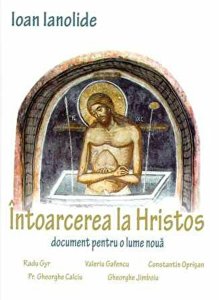










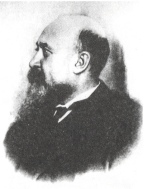

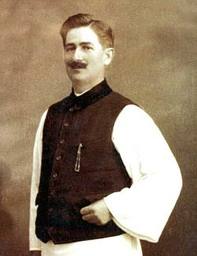


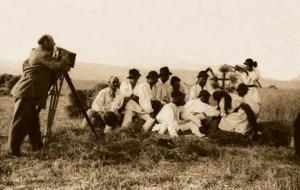







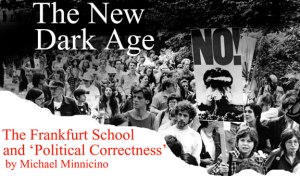
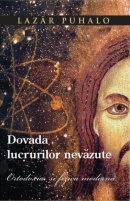
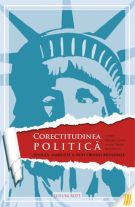





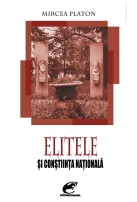




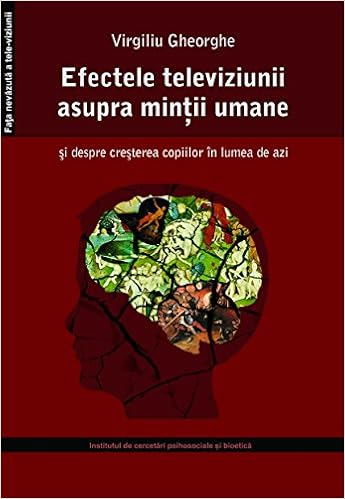





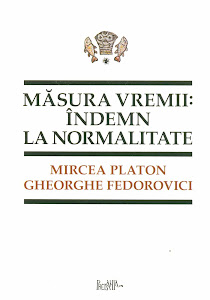







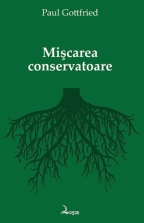

















Recent Comments